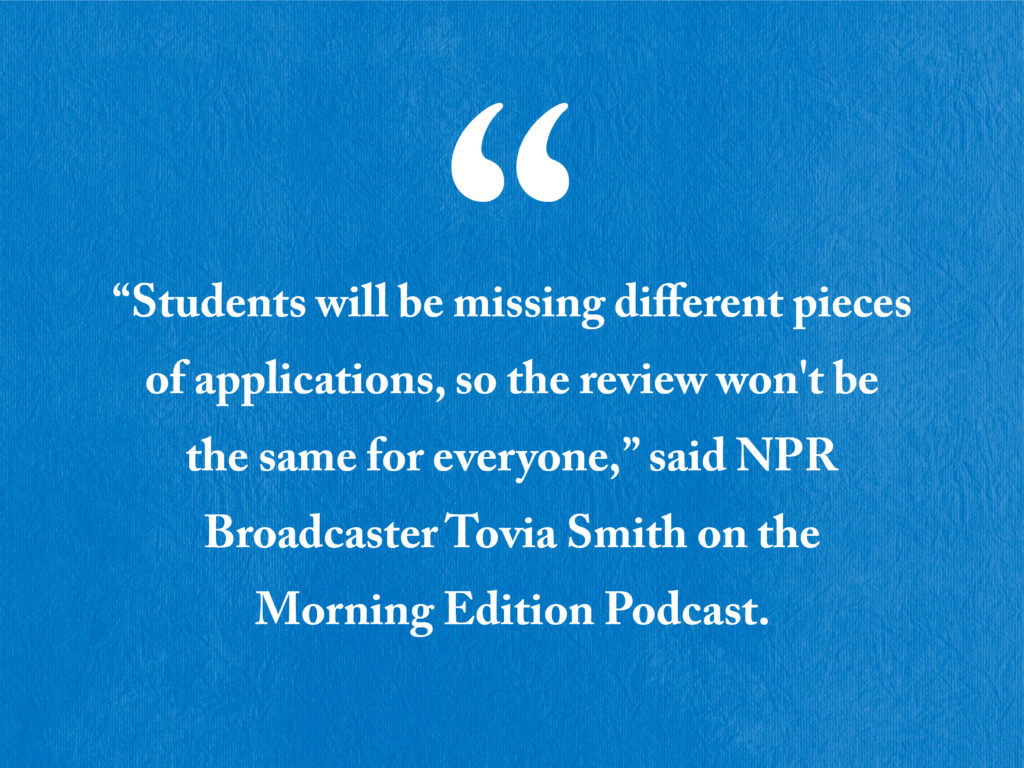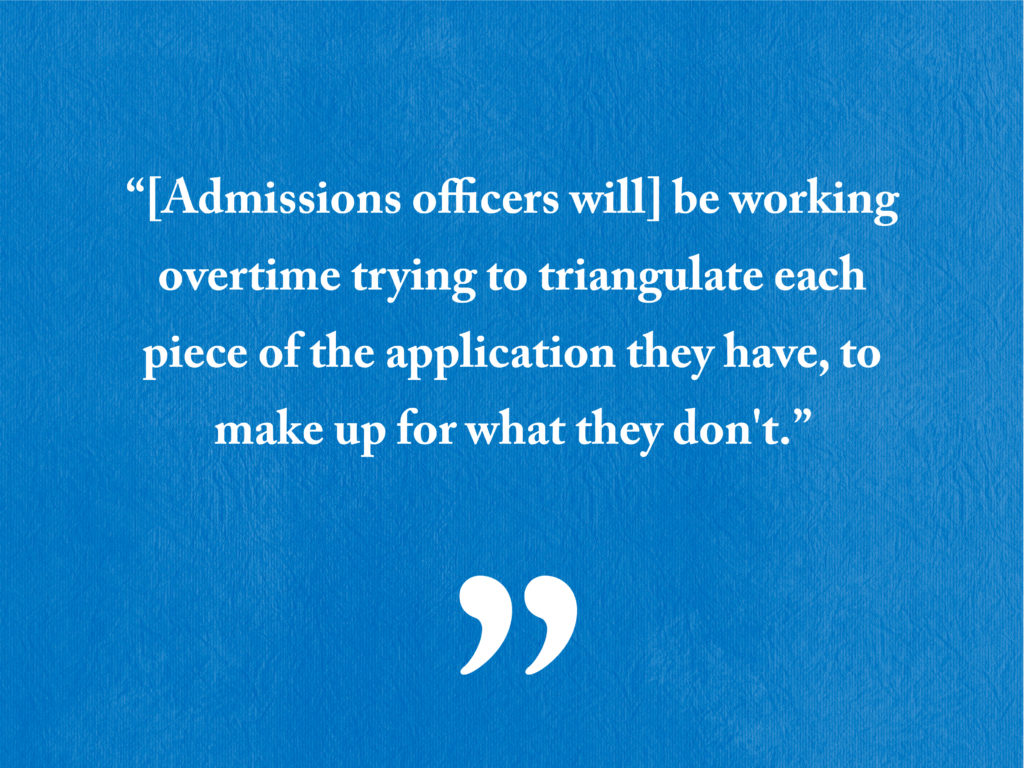Campus Beat Reporter
Lauren Luna
College admissions — like all things throughout the current pandemic — have had to change in response to the ways in which we’ve been displaced. As admissions season draws near for both incoming freshman and transfer students, significant changes have been made to admission criteria in response to the COVID-19 crisis.
Lisa Przekop, the director of the Office of Admissions at UC Santa Barbara (UCSB), confirmed that last year’s admissions team took off a significantly higher number of students from their waitlist. In 2019, about 10 percent of students on the waitlist were admitted to the university. This year, that number climbed — along with the proportion of admitted students — by 7 percent. Additionally, Przekop told The Bottom Line (TBL) that test scores will no longer be a requirement for both incoming freshman and transfer students this upcoming admissions cycle.
According to Przekop, the UC Board of Regents approved 14 criteria for admission in 2020. In May of this year, they held a vote which determined to make test scores optional as a supplemental testament of the student’s ability. The general UC admissions system, which selects students in a holistic evaluation process, does not believe that removing test scores from the admissions requirement will be too extreme a shift from the original system.
“Fundamentally, our review will not change dramatically,” commented Przekop in the interview with TBL. “We look at each applicant individually and their accomplishments in the context of what they have available to them.”
The elimination of testing requirements may suggest that other aspects of the application will change with the current circumstances.
Opportunities in extracurriculars, internships, and employment, which are fields usually used to distinguish applicants, have diminished this year in both accessibility and level of interest. According to the U.S. Bureau of Labor Statistics as of September 2020, the jobless rate and the number of unemployed people were 4.4 percentage points and 6.8 million, respectively. These numbers, though lower than the rate of unemployment at the start of the crisis, still remain lower than they were pre-pandemic.
Students have reported that it is difficult to keep up extracurricular engagement and job search efforts when the only modes of communication are behind the screen. Additionally, some schools have opted to use the pass/no-pass system for grading recently, complicating the direct review of the applicant’s academic performance.

Furthermore, students have been struggling to deal with other aspects of the pandemic, which can hinder their productivity and eligibility for admission. While some students are self-quarantining at home and are able to find remote work, others have struggled to even find secure housing for the 2020-21 school year. Earlier this year, students who were initially hired as resident assistants formed a coalition to help themselves and their peers find somewhere to live after the dorms closed.
Mental health concerns have also made it harder for certain students to be more productive. Some students have had to return to potentially abusive households after coming home from college, and others have been hurt by the lack of routine and social interactions while in quarantine.
“For many survivors of abuse in childhood, going to college served as an escape from an emotionally, physically, and/or sexually abusive home life,” reported Anna Marston, an intern for Mental Health America. “Given the financial strain, job loss, death and grief, and increased social isolation during the virus, experts also worry that the heightened stress might increase violence.”
Because people have been affected by the pandemic in different ways, admissions officers have decided to take a more nuanced approach towards applicant review.
“Students will be missing different pieces of applications, so the review won’t be the same for everyone,” said NPR Broadcaster Tovia Smith on the Morning Edition Podcast. “[Admissions officers will] be working overtime trying to triangulate each piece of the application they have, to make up for what they don’t.”

Some schools have looked towards application elements to gain a better read on the applicant as a person, rather than a collection of numbers. Smith reported that schools like Tulane and Bowdoin have added new sections to the application process, including an optional interview and a series of impromptu discussion questions, respectively.
Given the changes to UCSB’s admission systems, many have wondered if the changes to the admissions process reflect a bigger revolution at hand. Schools like New York University and the University of Chicago implemented test-flexible policies into their admissions system long before COVID-19 became relevant. They — among other universities — are gravitating towards an even more nuanced evaluation of each applicant, and some think that a more holistic stance on college admissions may become the new normal.











